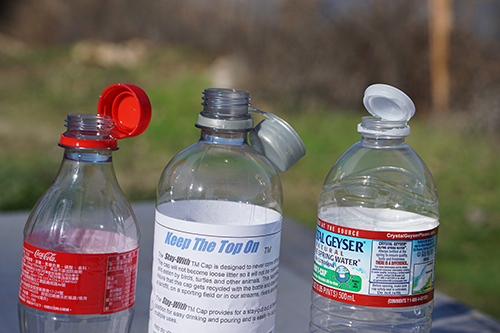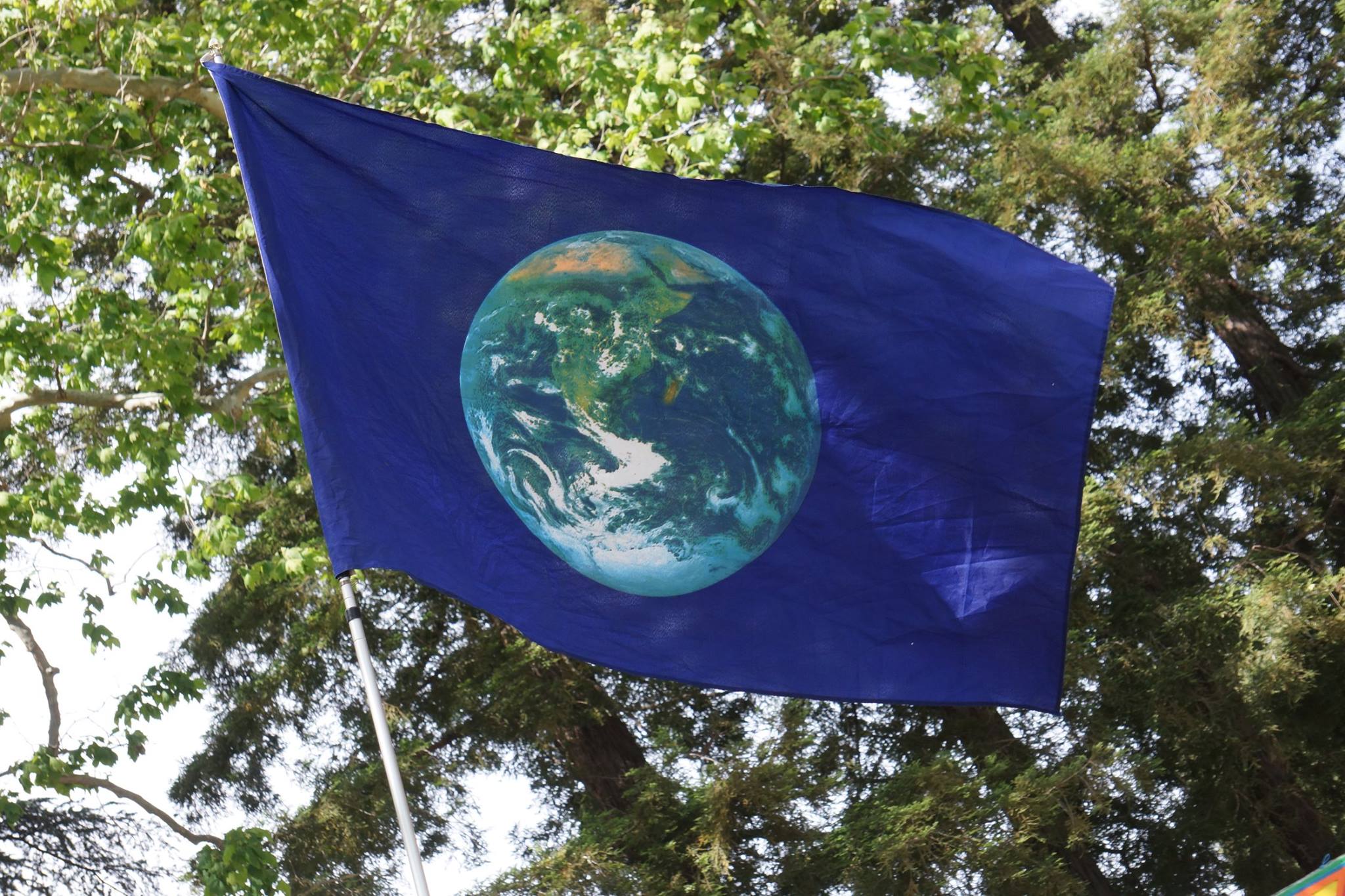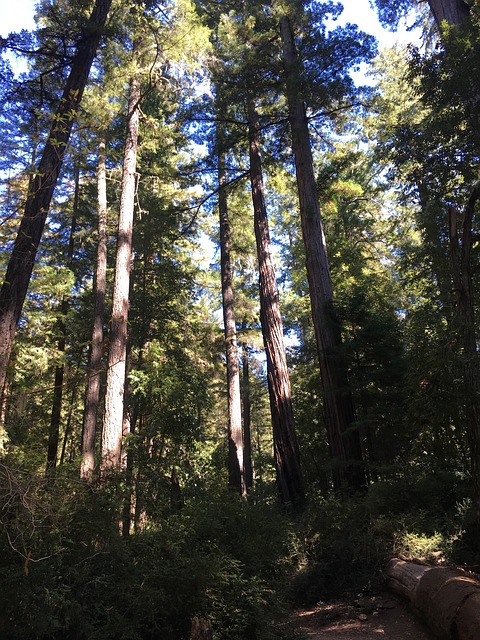

California Fights the Plastic Waste Stream
By Eddie Moreno
You are what you eat. Well, if that’s the case, it may horrify you to know that you’re probably part plastic straw or cigarette butt or even part fleece sweater. On the bright side, at least you won’t need to buy sweaters anymore!
Plastic pollution has become so pervasive in California it affects nearly every river, stream, park, and street. Though most plastic waste is generated on land, most of it will eventually make its way to the ocean.
The World Economic Forum predicts that by 2050, there will be more plastic in the ocean than fish if we don’t act soon. New research is already showing that plastic and its associated toxins are ubiquitous in the ocean’s food webs and that includes seafood sold for human consumption.
To help ensure we don’t turn into walking plastic straws, the California legislature has introduced several bills to prevent millions of metric tons of plastic trash from ending up in the ocean.
This diverse portfolio of solutions, which is supported by the state’s environmental community, includes a jab at the number one litter item: cigarette butts.
AB 2308 would ban the sale of cigarettes with filters. Other bills propose banning smoking products in all of California’s state parks and beaches altogether.
Microscopic plastic fibers, or microfibers, from fleece clothing are a key type of plastic pollution and a threat to the environment.
AB 2379, is a simple solution, which would require labeling and care instruction for fleece in order to reduce microplastic fiber shedding.
On the food and beverage packaging front,
AB 2779 would require that all single-use plastic bottles have their caps tethered and
AB 1884 would require that dine-in restaurants give consumers a choice on whether they would like to receive a straw or not.
SB 1335 requires that all state parks and beaches serve only recyclable and compostable food packaging.
With an estimated eight million metric tons of our plastic waste entering the oceans every year, Sierra Club is here to support these creative and absolutely necessary solutions.

Happy Earth Day!
By Molly Culton
The first Earth Day – April 22, 1970 – marked the birth of the modern environmental movement. On this day, 20 million Americans participated in demonstrations across the country to advocate for a healthy and sustainable environment.
This historic event led to the creation of the United States Environmental Protection Agency, as well as the passage of important legislation such as the Endangered Species Act, the Clean Air Act, and the Clean Water Act.
Observed by more than a billion people every year, Earth Day is the largest secular holiday in the world. Here are a few of the Earth Day celebrations happening around the state:
Berkeley: Berkeley Earth Day, April 22nd, 10am - 6pm at the David Brower Center. Also check out the Wild and Scenic Film Festival to discover documentaries on grassroots organizing and environmental activism.
Los Angeles: Earth Day LA 2018, April 21st, 10am - 2pm in Highland Park. The third annual Earth Day LA event will feature over 50 exhibitors, free food, and giveaways. At the kids tent, children will learn about the Urban Water Cycle and how to start their own vegetable garden.
Sacramento: Sac Earth Day, April 22nd, 11am - 4pm in Southside Park. There will be food, live entertainment, electric vehicles, and local art. Stop by the Sierra Club California booth to learn about our Buy Clean campaign and how you can make a difference in your local community.
San Diego: EarthFair 2018, April 22nd, 10am - 5pm in Balboa Park. The celebration will feature 300 exhibitors, a food pavilion, live entertainment, a children's activity area, and an arts and crafts show by the eARTh Gallery. Be sure to arrive early to watch the Earth Day Parade.
San Francisco: San Francisco Earth Day 2018 Festival & Climate Rally, April 21st, 11am - 7pm at SF Civic Center. This year’s theme is Stand for the Redwoods/Stand for the Future. The festival will feature musical performances, a clean energy zone, an organic chef showcase, and more. Plus, expert speakers will discuss the connections between politics, technology, and the environment.
Santa Cruz: Earth Day Santa Cruz, April 21st, 11am - 4pm in San Lorenzo Park. Programs include an Upcycled Art DIY Workshop, the Environmental School Challenge Awards, and the Recycled Fashion Show.

Join Sierra Club California for a Biomass Summit
By Daniel Barad
On Saturday, April 28th, Sierra Club California will host a Biomass Summit in Sacramento. Environmental experts will share their insights on conventional biomass incineration and the forest health crisis it is exacerbating.
Sierra Club members who are interested in forests, air quality or waste issues should consider attending the Biomass Summit.
We hope to have representation from across the state, but space is limited. Please reach out to me at
Daniel.Barad@sierraclub.org to reserve your spot as soon as possible. Travel to Sacramento will be reimbursed at 25 cents/mile and lunch will be provided.
Conventional biomass incineration is an inefficient and dirty method of generating electricity by burning trees. In the late 1980s, there were 63 biomass incinerators in California; now, there are only 20 operational facilities.
These remaining facilities with outdated emission controls are being propped up by misconceptions related to the “Tree Mortality Crisis”. Conventional biomass incineration and logging industry lobbyists dominate tree mortality conversations at the Capitol.
As a result, the legislature and governor saved biomass incinerators, deemed essential forest habitat as hazardous, and ignored environmental and social justice voices.
Genevieve Gale, a policy associate for the Central Valley Air Quality Coalition, will discuss how biomass incineration negatively impacts Central Valley communities that are suffering from air pollution.
Some policymakers view the incinerators positively because they utilize dead trees that some claim pose intense fire danger. Brian Nowicki, the Center for Biological Diversity’s California Climate Policy Director, will address the myth that dead trees are responsible for recent megafires. Brian will also address the ecological benefits that dead and burned trees provide.
The Summit will conclude with a discussion on Sierra Club California’s Biomass campaign and strategies that will help us win in our forests, communities and at the Capitol. Email me today at
Daniel.Barad@sierraclub.org to reserve your spot.
Follow Us:
Thank you for being a part of our work! Consider making it monthly. You may securely donate online or by sending a check to Sierra Club California at 909 12th Street, Suite 202, Sacramento, CA 95814.







